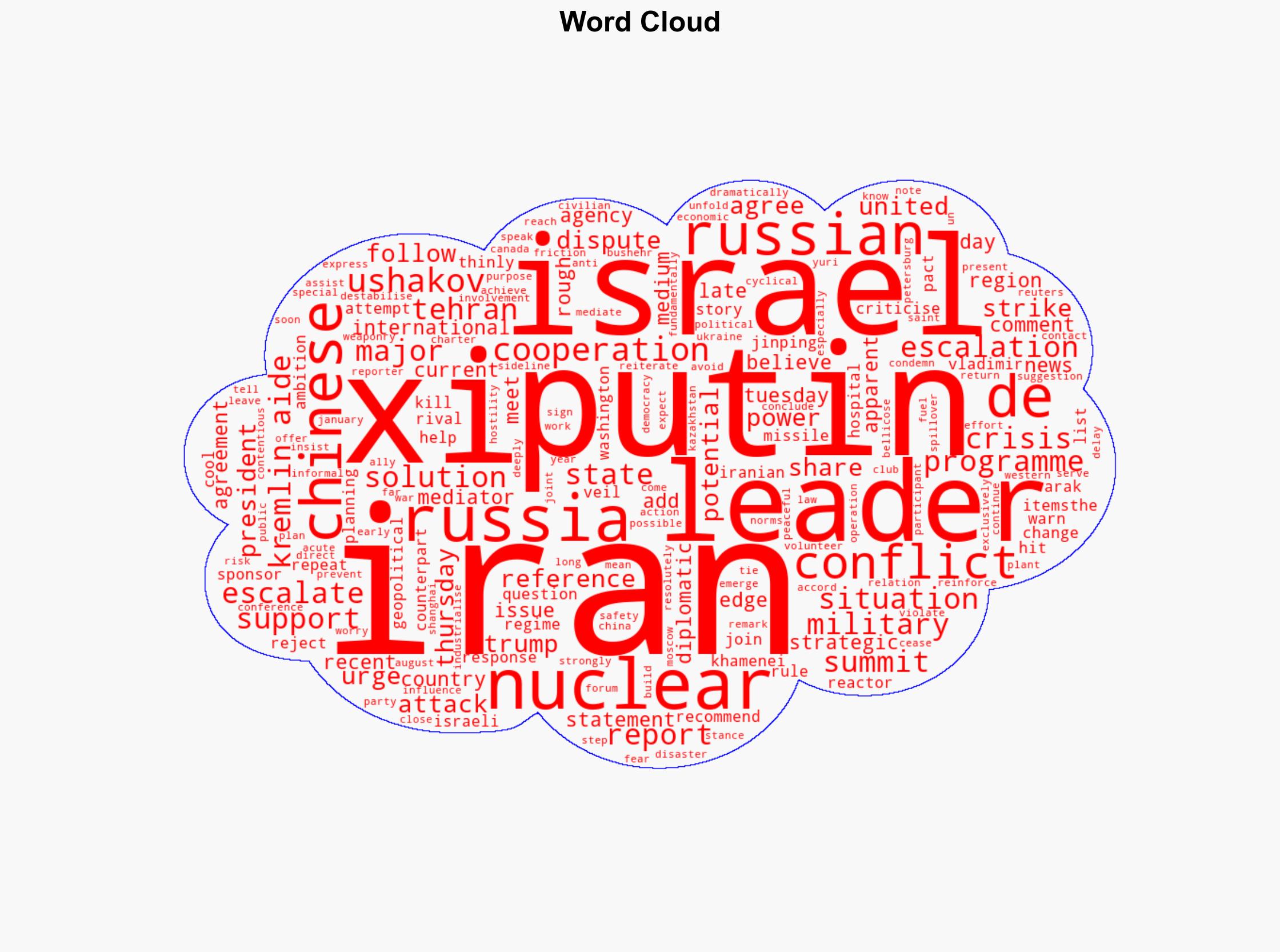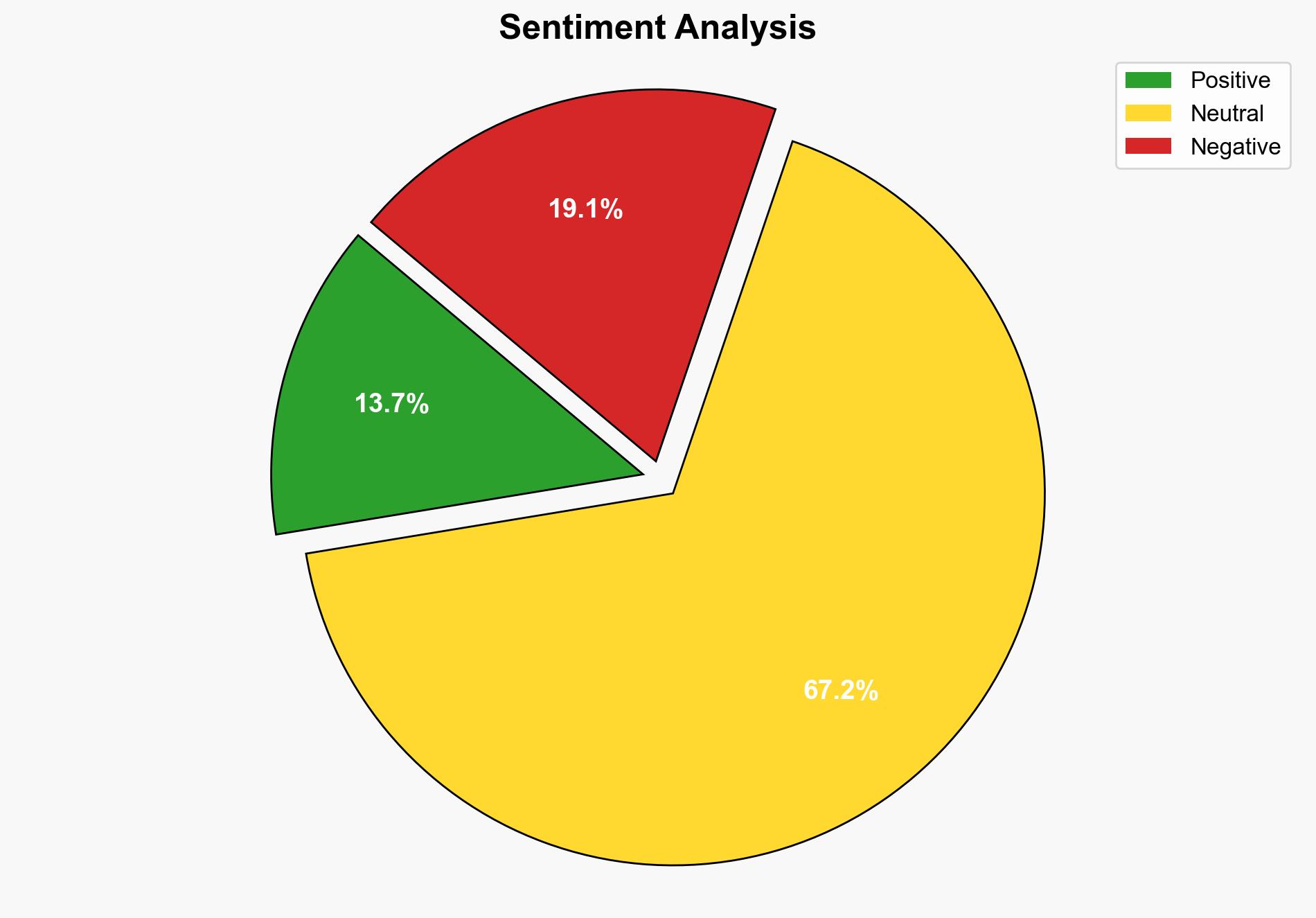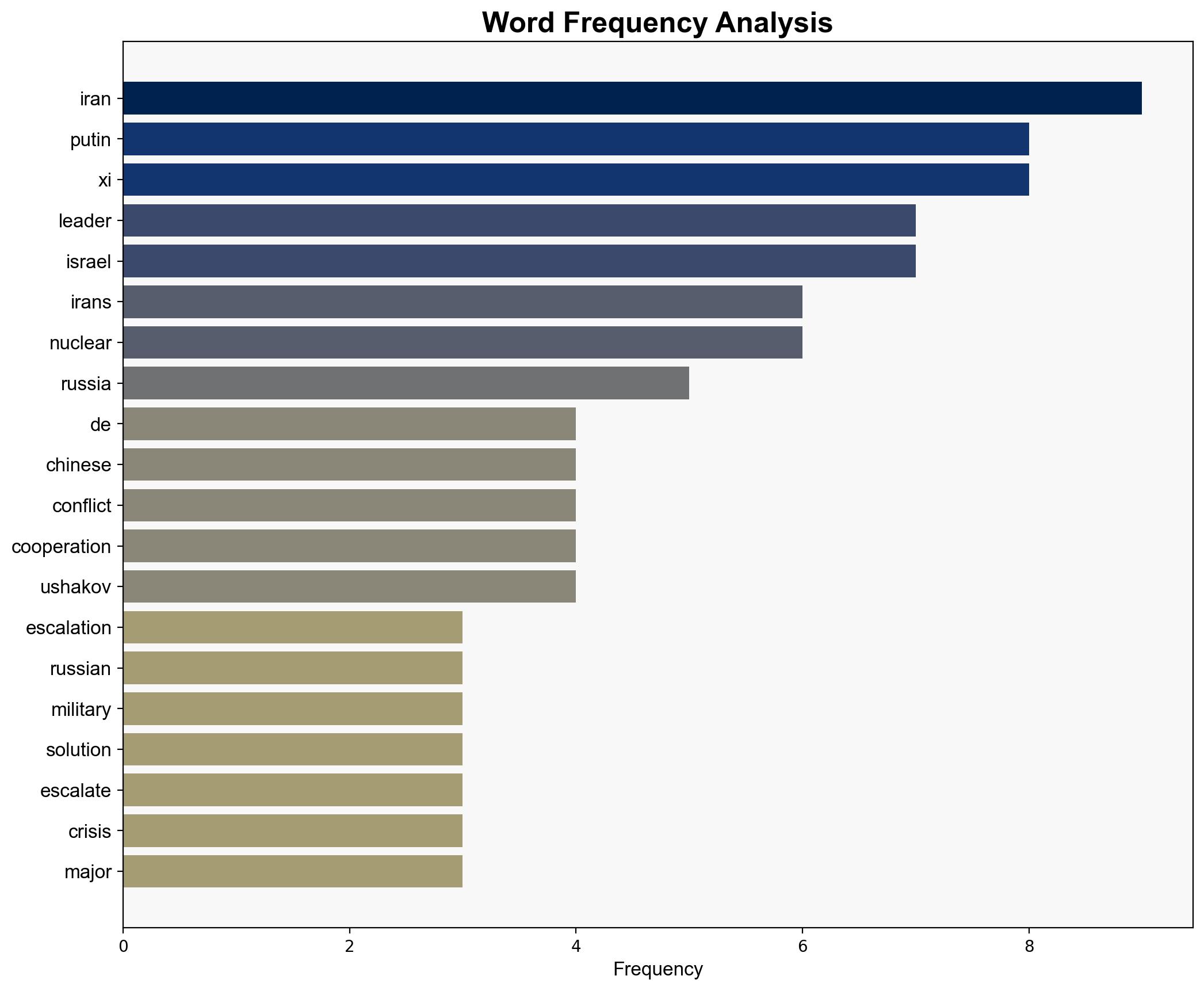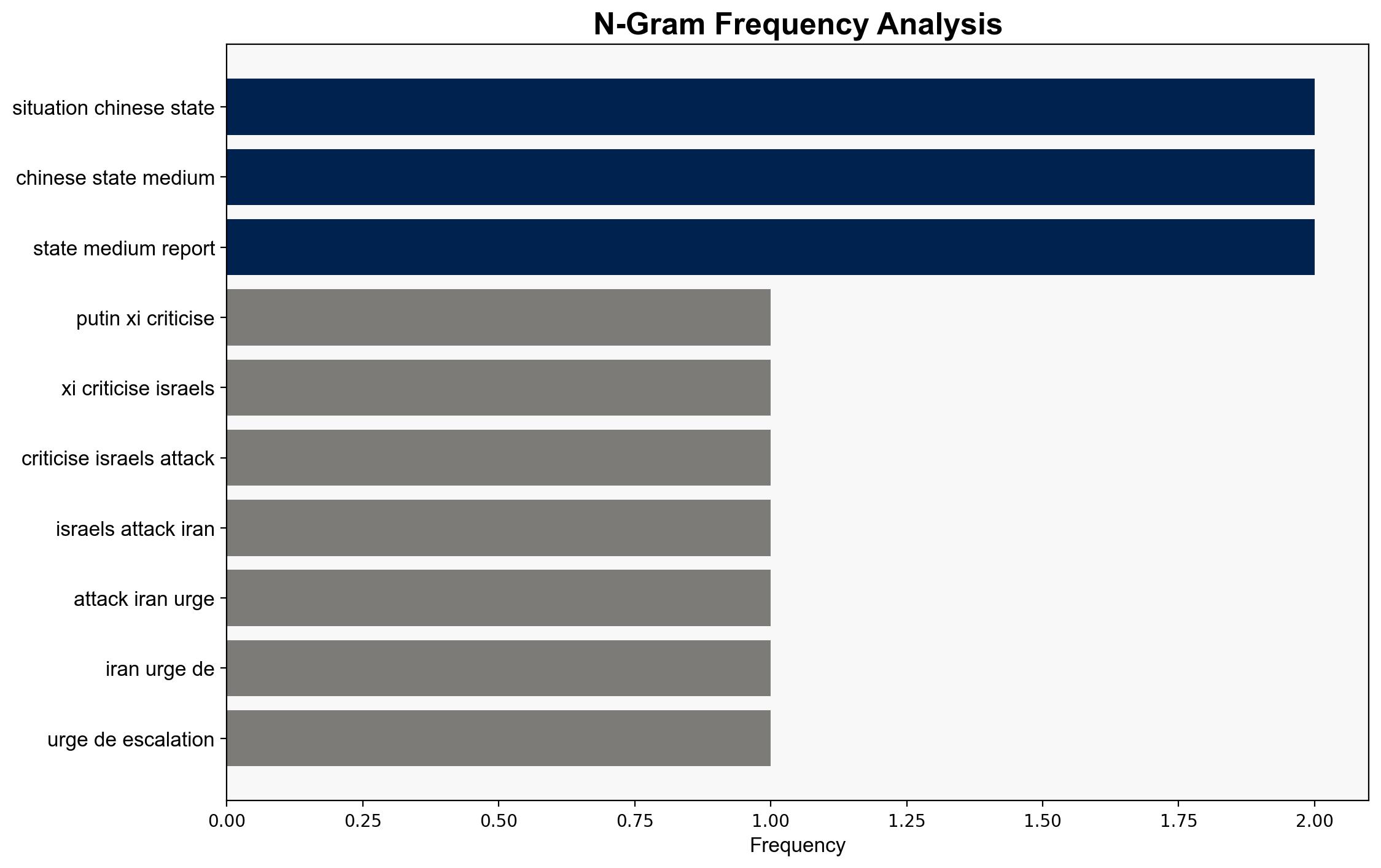Putin Xi criticise Israels attacks on Iran urge de-escalation – Al Jazeera English
Published on: 2025-06-19
Intelligence Report: Putin Xi Criticise Israel’s Attacks on Iran Urge De-escalation – Al Jazeera English
1. BLUF (Bottom Line Up Front)
Russian President Vladimir Putin and Chinese leader Xi Jinping have publicly criticized Israel’s military actions against Iran, urging de-escalation and advocating for a diplomatic resolution to Iran’s nuclear ambitions. This united stance highlights a geopolitical alignment between Russia and China, opposing the United States and its allies. The leaders emphasize the risks of military escalation and propose mediation to prevent further regional destabilization.
2. Detailed Analysis
The following structured analytic techniques have been applied to ensure methodological consistency:
Causal Layered Analysis (CLA)
At the surface level, the conflict between Israel and Iran is escalating due to military actions. Systemically, this is influenced by geopolitical rivalries and alliances, particularly involving the U.S., Russia, and China. The worldview is shaped by competing narratives of regional dominance and nuclear non-proliferation. The underlying myth is the inevitability of conflict in the Middle East.
Cross-Impact Simulation
Potential ripple effects include heightened tensions across the Middle East, impacting global oil markets and increasing the risk of broader military confrontations. Economic dependencies on regional stability could be disrupted, affecting international trade.
Scenario Generation
– Best Case: Diplomatic efforts lead to a de-escalation of tensions and a renewed focus on diplomatic negotiations regarding Iran’s nuclear program.
– Worst Case: Continued military actions provoke a wider regional conflict, drawing in additional state and non-state actors.
– Most Likely: Prolonged diplomatic standoff with intermittent military engagements, maintaining a status quo of tension.
Narrative Pattern Analysis
The ideological narratives involve the portrayal of Iran as a regional threat by Israel and its allies, countered by Russia and China’s depiction of Western interventionism as destabilizing. These narratives influence international perceptions and policy decisions.
3. Implications and Strategic Risks
The alignment of Russia and China against Israeli actions could lead to a strategic shift in regional alliances. The risk of military escalation poses threats to global energy security and could trigger cyber or economic retaliations. The potential for nuclear proliferation remains a critical concern.
4. Recommendations and Outlook
- Encourage diplomatic engagement through multilateral forums to de-escalate tensions.
- Enhance intelligence sharing among allies to monitor developments and preempt potential threats.
- Prepare contingency plans for economic disruptions, particularly in energy markets.
- Scenario-based projections suggest prioritizing diplomatic channels to prevent worst-case outcomes.
5. Key Individuals and Entities
– Vladimir Putin
– Xi Jinping
– Yuri Ushakov
6. Thematic Tags
national security threats, regional stability, diplomatic mediation, geopolitical alliances





